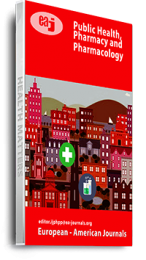This study evaluated the effect of Moringa on the renal function of HIV positive patients. It was a time dependent comparative pilot study involving 140 patients (53 (37.9 %) male and 87 (62.1%) female) in the sampled population, who attends ARV clinic at the University’s Teaching Hospital, Port Harcourt. The study was a 3 phases design to include Visit 0, 1 and 2 which lasted for about 12weeks (3months). The subjects were divided into two experimental groups (those receiving tenofovir and moringa and those receiving tenofovir without moringa supplementation). For the moringa group at visit 0, 1 and 2 respectively, the following values were obtained (Urine phosphate was 16.3711.84, 12.798.37 and 18.356.29; Urine Albumin was 2.001.41, 1.290.96 and 1.132.54; Urine Creatinine was 125.682.01, 418.53225.54 and 766.211030.82; Uric acid was 326.4387.45, 289.8782.50 and 239.3867.36; Urine Total Protein was 7.625.06; 19.8542.94 and 8.453.85. Significant differences were seen in the measured parameters at Visit 0, 1 and 2. However in the non moringa group, Urine phosphate was 16.93±12.53, 17.49±9.33 and 18.94±6.77; Urine Albumin was 0.90±0.56, 1.36±0.89, and 1.36±0.94; Urine Creatinine was 479±1.90, 489.06±445.09 and 514.85±595.55; Uric acid was 317.81±72.78, 311.79±65.55 and 259.56±84.04; Urine Total Protein was 15.04±26.73 9.50±5.07 and 6.53±3.84; for Visit 0, 1 and 2. Significant difference was observed in the measured parameters across all Visits from baseline to end of study. However differences were generally higher in the control, compared to the experimental groups. Finding therefore shows that moringa improved renal function slightly in HIV positive subjects, while sex was also observed to play a role. The study is therefore recommended to Physicians and care givers in other to help improve the health and wellbeing of HIV patients, especially those on tenofovir (TDF) based ARV regimen.
Keywords: HIV, Moringa, Renal Dysfunction, Tenofovir

